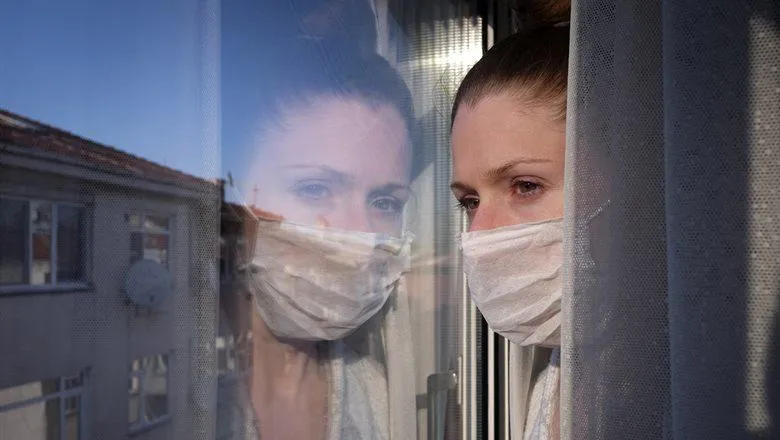Pandemics and the consequent enforced social distancing affect whole populations but they do not affect all equally. This ESRC commissioned review has shown that COVID-19 pandemic is likely to have a disproportionate impact on the most disadvantaged, marginalised, and vulnerable – as we have seen in previous epidemics and pandemics.
Dr Charlotte Gayer-Anderson, lead researcher, from the ESRC Centre for Society and Mental Health, Institute of Psychiatry, Psychology & Neuroscience, King’s College London
16 June 2020
Mental health of the vulnerable most at risk from social isolation in COVID-19 pandemic
A new review by King’s College London researchers has shown that social isolation in response to public health crises has the greatest mental health impact on the vulnerable and the disadvantaged.

Considering the extent of social isolation measures in the current COVID-19 pandemic, the review calls for more research targeted at specific groups to understand their experience at this time and the need to develop measures to address the mental health impacts of the pandemic.
Commissioned by the Economic and Social Research Council (ESRC) the study reviewed 50 papers and found that, following periods of isolation either at an individual or community level in the context of public health crises, mental health problems are more common in vulnerable and disadvantaged groups. This impact was most prominent for people whose vulnerability was multifaceted for example those on a low income, in insecure employment, and belonging to a minority ethnic group.
Conducted by researchers from the ESRC Centre for Society and Mental Health at King’s College London, the review defines vulnerable groups as those at greater risk of infection and/or of adverse effects of social distancing measures.
The review found that the mental health of children and adolescents, especially those with pre-existing mental health and other needs, were particularly affected by social isolation, suggesting policies targeted at mitigating the effects among young people may be especially important. According to the analysis, the risk of abuse and exploitation, particularly among girls and women, is likely to increase when people are confined to their homes for long periods of time.
Alongside this, researchers found that the vulnerable and disadvantaged were less able to comply with social distancing measures and this was most difficult for those on low incomes, in insecure employment, and living in overcrowded homes. Such groups are therefore more likely to be both exposed to infection from COVID-19 and sanctioned for violating regulations, which in turn can impact their economic situation and their mental health.
There is already evidence of differential effects: mortality is higher among health care workers, in black and minority ethnic groups, and in poor and disadvantaged populations. Our review calls for more social science research to understand what factors may influence the short˗ and long˗term mental health impacts of the current pandemic and for targeted policy responses based on this research to help these vulnerable and disadvantaged groups at this time and in the future.
Dr Charlotte Gayer-Anderson, lead researcher, from the ESRC Centre for Society and Mental Health, Institute of Psychiatry, Psychology & Neuroscience, King’s College London
The review included research on healthcare workers, children and young people, older people, those with pre˗existing physical health conditions, and those on low income. The review found no studies that specifically assessed the impacts of social isolation among refugees, minority ethnic groups, the homeless, those with severe and enduring mental health problems, or women in abusive relationships, indicating the need for research to chart the experience of these groups at this time.
As part of the review, the researchers highlighted the need of longitudinal studies, based on pre-existing cohorts, to directly examine the impact of social restrictions over time. Alongside this they recommend there should be targeted and localised studies to explicitly assess the effects of the COVID-19 pandemic among the different groups.
Contact: For interviews or any further media information, please contact: Franca Davenport, Interim Senior Press Officer, IoPPN: franca.davenport@kcl.ac.uk / +44 7718 697176

